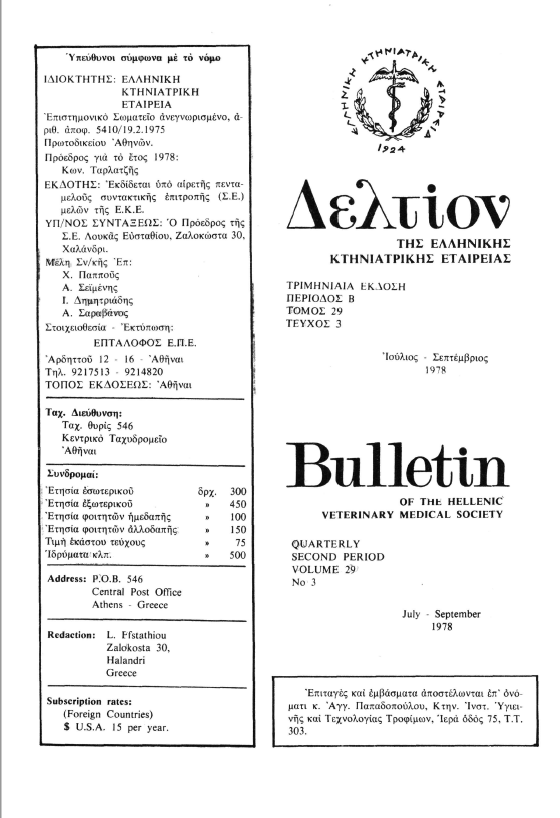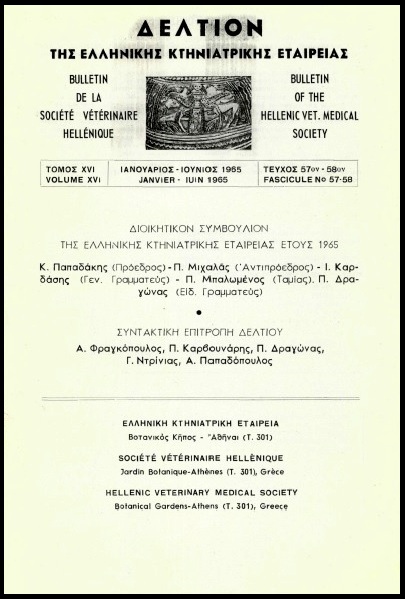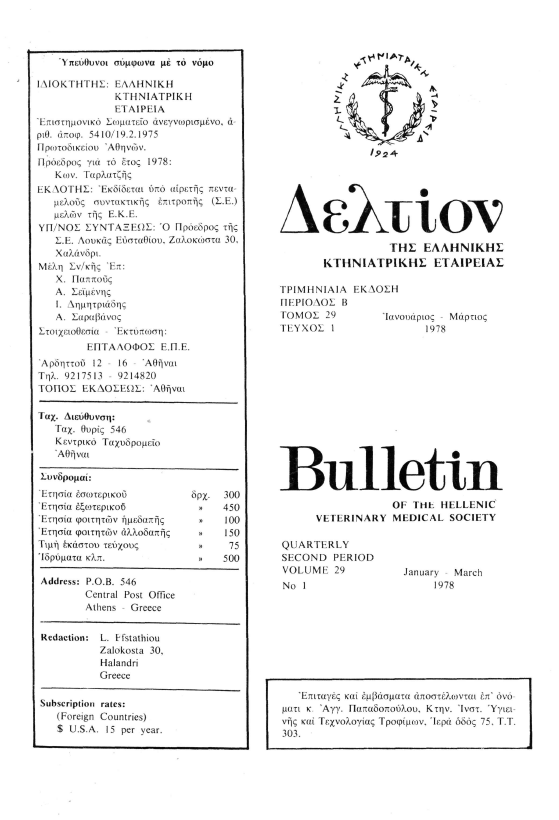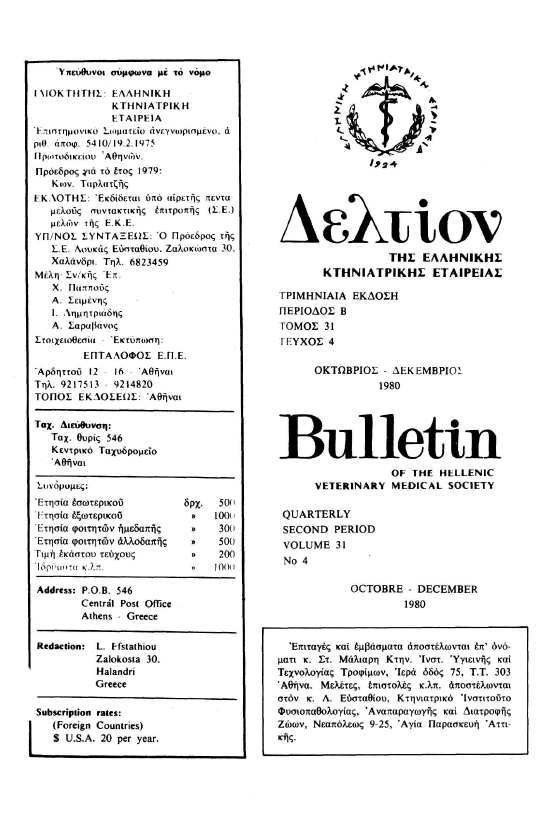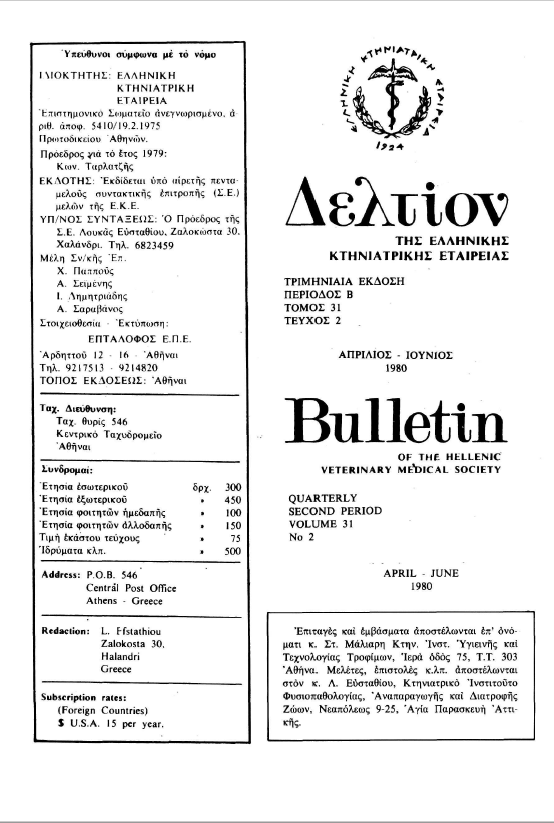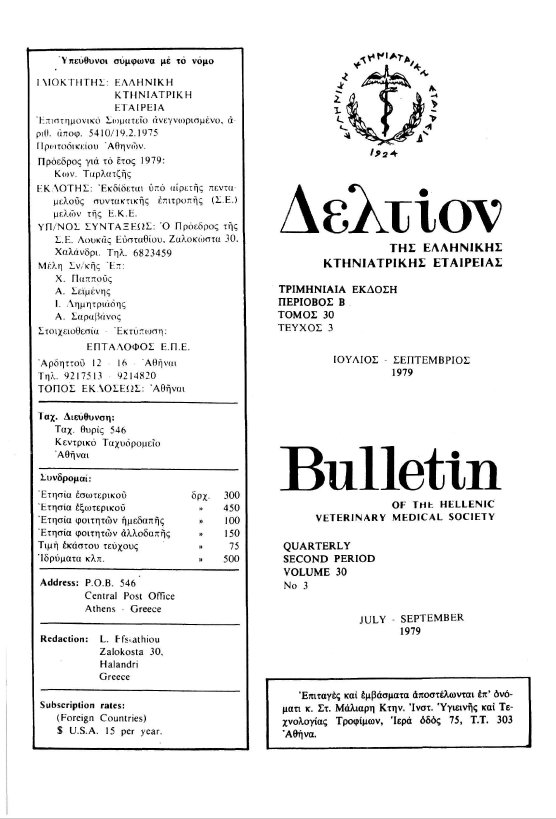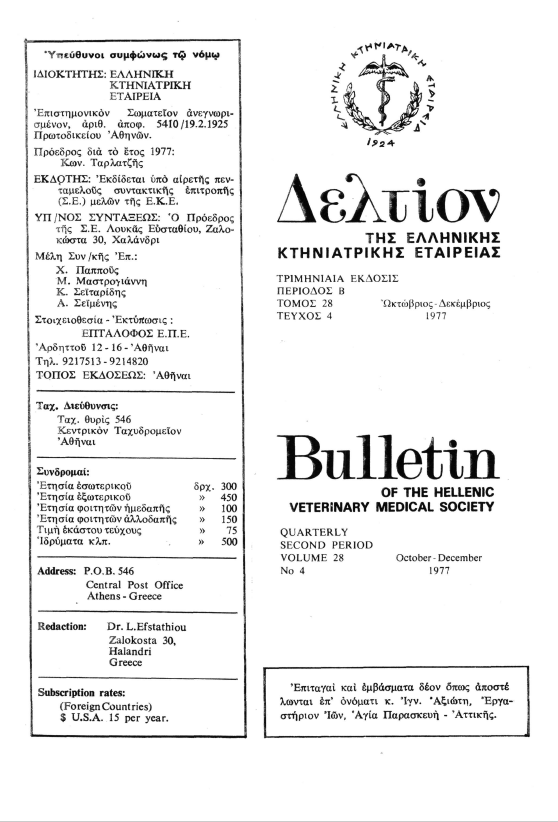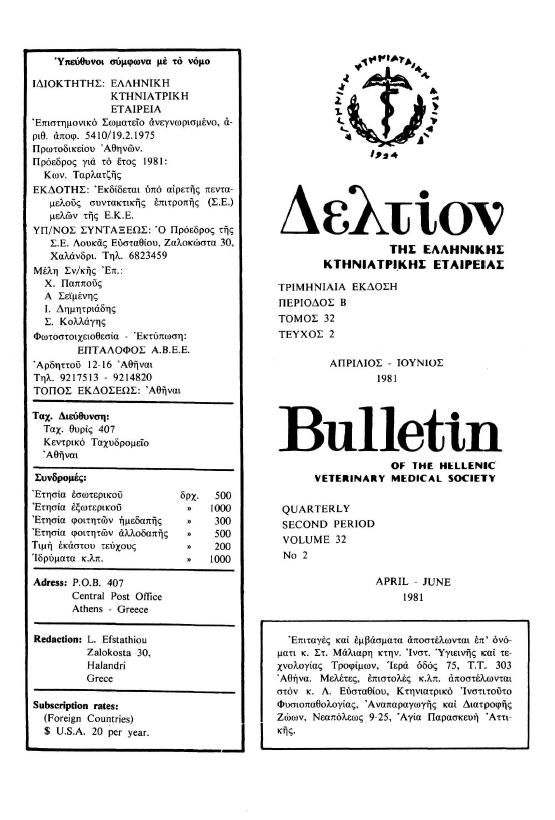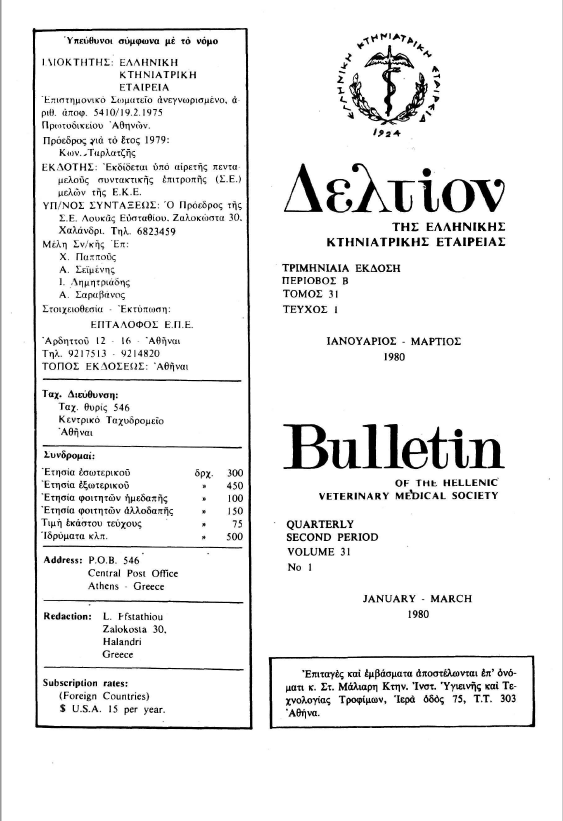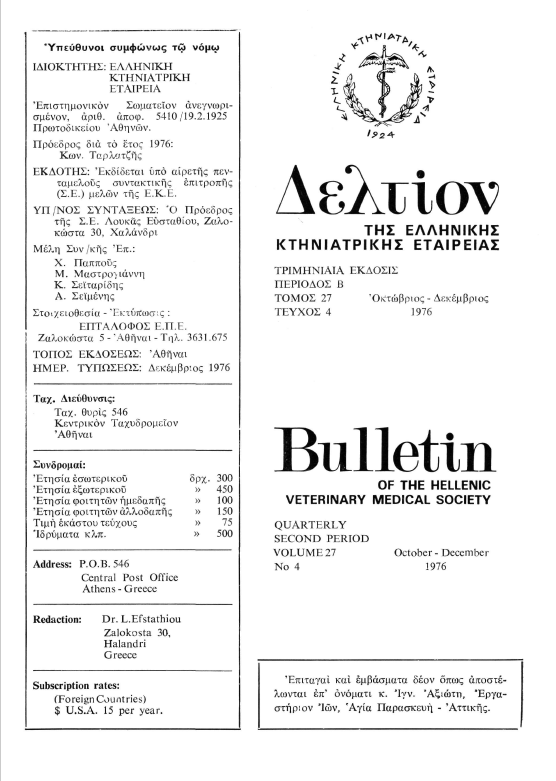The Veterinary Profession in Greece. Review of the Present and Prospects for the Future. Veterinary Specializations of Indirect Importance
Abstract
This subject, constitut ng part of a series of articles concerned with the organization of the Hellenic Veterinary Medical Society and the Veterinary and Animal Industry sections of the Ministry of Agriculture, the duties and responsibit ties of the veterinarian and his education and specialization, includes seven interdisciplinary fields in which the veterinarian can render significant service. These fields are the Biomedical Sciences and Medical Research, Comparative Pathology, Ecology, Animal Behavior, Marine Sciences, Industrial Veterinary Medicine, and Computer Technology. Within these fields, the topics include recumbinant of DNA research; experiments conducted at the University of California Veterinary School located at Davis on the pathogenesis of human emphysema; conclusions of the latest Pacific Scientists Congress (Vancouver, B. C, August 1975); dog's behavior; beneficial effect of dogs on sick persons, children deprived of families, lonely elderly people; dog's role in studies of human personal and social behavior, as well as in psychopharmacology and psychophysiology; integration of pets society and its consequences; veterinary ethology; effect of inadequate psychosexual orientation of dogs, etc; development of pisciculture and fisheries and of the relative food chain; utilization of proteins recycled from waste material; repopulation of lakes and bays, etc. This particular emphasis in the field of Marins Sciences is given in miez of Greece's long and diversified costline. The potential for fisheries development is tremendous,'and the enonomic effect to the country of such develohment is quite obvious. Although some of the fields show little sign of progress in Greece at present, it was deemed imhortant to discuss them here in the hope of drawing the timely attention of the young veterinarian to the importance of these specializations for the prestige and elevation of the veterinary profession and for the improvement of the economic conditions of the country. In addition, recent information concerning the above could serve as an incentive and inspira tion to the young veterinarian to work in these fields. At the same time, this information could serve as the basis For pertinent changes in the training and education of veterinarians in preparing them to meet the challenges of the future.
Article Details
- How to Cite
-
ΧΑΤΖΗΟΛΟΣ Β. Κ. (2019). The Veterinary Profession in Greece. Review of the Present and Prospects for the Future. Veterinary Specializations of Indirect Importance. Journal of the Hellenic Veterinary Medical Society, 29(3), 151–173. https://doi.org/10.12681/jhvms.21351
- Issue
- Vol. 29 No. 3 (1978)
- Section
- Articles

This work is licensed under a Creative Commons Attribution-NonCommercial 4.0 International License.
Authors who publish with this journal agree to the following terms:
· Authors retain copyright and grant the journal right of first publication with the work simultaneously licensed under a Creative Commons Attribution Non-Commercial License that allows others to share the work with an acknowledgement of the work's authorship and initial publication in this journal.
· Authors are able to enter into separate, additional contractual arrangements for the non-exclusive distribution of the journal's published version of the work (e.g. post it to an institutional repository or publish it in a book), with an acknowledgement of its initial publication in this journal.
· Authors are permitted and encouraged to post their work online (preferably in institutional repositories or on their website) prior to and during the submission process, as it can lead to productive exchanges, as well as earlier and greater citation of published work.

